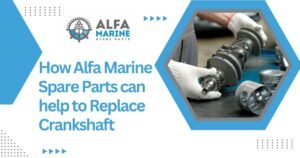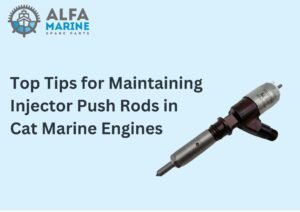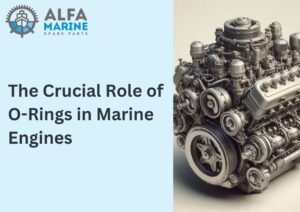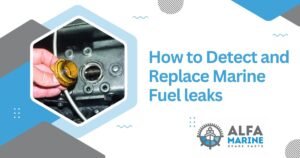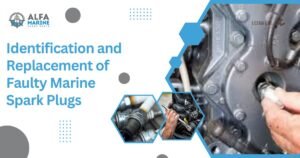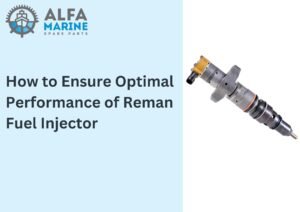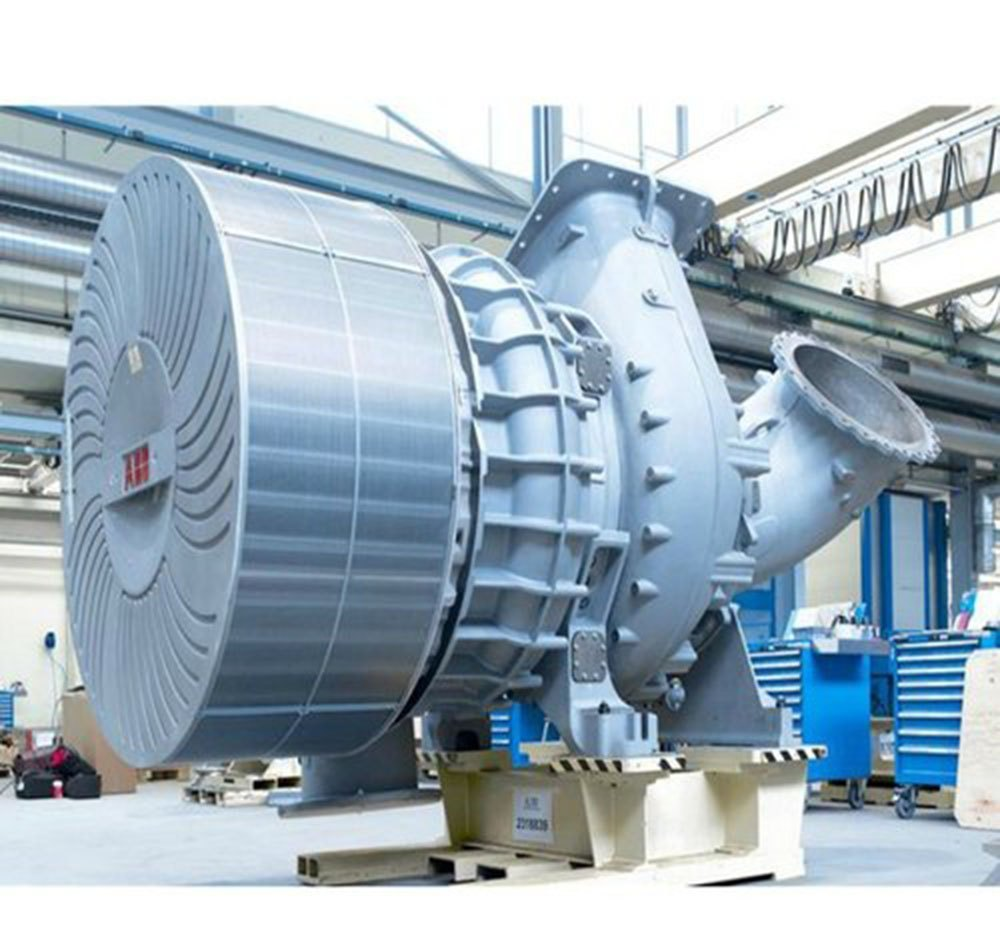
The turbochargers in marine engines are an eminent part of the emission control system of the vessel. It is a type of electricity generator and exhaust heat recovery equipment. A turbocharger extracts exhaust gases via the rotor shaft and recycles these gases to generate power on board for vessel operation.
In this blog post, we offer an overview of the role of marine turbochargers, their operation basics, and the frequent problems in such devices.
Role of Turbochargers in Marine Engines
Turbochargers for exhaust gas treatment and energy production are mainly used in marine diesel engines. These machines feature a blower, turbine, and compressor. The exhaust gases enter the system through a turbine wheel and are released through a turbine housing to the compressor. Turbocharger compressors possess a high-velocity wheel connected to the turbine with a robust shaft made of forged steel.
The turbine regulates the compressor wheel spinning to create high-velocity airflow at a low pressure. This air is diffused inside the compressor to streamline high-velocity airflow at high pressure. The watercraft turbocharger induces high-pressure air at high velocity to the engine for greater fuel burning and enhanced power output.
Common Problems in Turbochargers
While periodical inspection, overhaul, and maintenance are mandatory for marine turbochargers, glitches are unpredictable. Here are the sure signs of faulty operation in turbochargers.
#1. Noise and Vibration
The earliest symptom of underlying mechanical complications in turbo systems is evident from the unusual noises. If the device produces grinding and spinning sounds, it may indicate a problem with its bearing system. This may also persist if the parts are not fitted accurately.
One possible cause of sound and vibration is the misalignment between the housing and the rotor. Loose fitting prompts the rotor to rub against the housing walls.
#2. High Exhaust Gas Temperature
The temperature of the exhaust gas depends on the operating power of the system at specific engine speeds. Clogging and contamination in air filters boost stress on the turbochargers in marine engines. It blocks air inside the engine, increasing the exhaust gas temperature and backpressure.
#3. Fluctuating Air Pressures
Periodical wearing of the internal parts, including piping, intercooler, turbine wheel, compressor, and other parts can lower the air pressure in the turbocharging systems. This can also result due to a lack of maintenance and internal cleaning. Carbon deposits, debris, and leakage are other causes of low air pressure.
#4. Bearing Failure
Overlooking the early signs of problems in turbocharging devices can result in bearing failure. The rotor can start wobbling due to malfunctioning in the bearings. This affects the performance of the entire system and lowers the acceleration.
Inspection and Maintenance in Marine Turbochargers
Regular equipment audits and maintenance are vital for turbochargers in marine engines. The marine engineers schedule turbocharger inspection after specified hours of operation. It is recommended to inspect the turbochargers per 100,000 miles.
The basic inspection and maintenance include checking the internal parts, checking the sump oil levels, and air inlet filter cleaning, and washing off the water from the sides.
Detecting problems in the turbochargers can prevent complications and repair costs. Turbocharger OEM parts of renowned marine brands are easily available online. Rather than replacing the entire unit, you can change affected spare parts at a fraction of the cost. With genuine parts, the system can function efficiently to support the engines and other equipment on board.
Buy OEM Marine Turbochargers at Competitive Prices
Alfa Marine Spare Parts is one of the leading providers of Caterpillar turbochargers. We also sell marine engines, spare parts, and other devices from renowned brands. Contact us if you need any parts for Cummins, Cat, Volvo Penta, Deutz, Wartsila, Detroit Diesel, and others.


